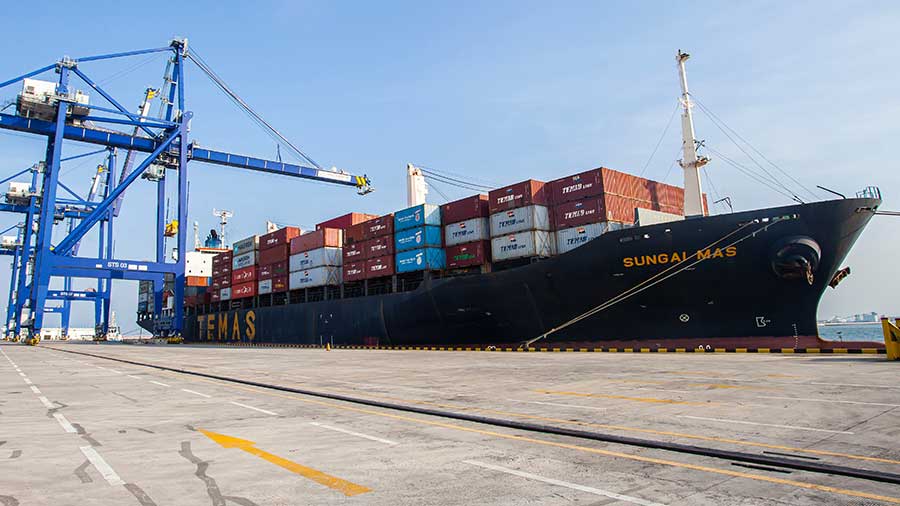Global investors often find themselves in an unfavorable position of having to face being double taxed – taxed by two different countries on the same income – unless there is a Double Tax Avoidance Agreement in place. For example, a company might be subject to taxes in its native or resident country, and also in another foreign country where it has raised income by providing labor, or via a foreign-invested company that provides goods or services.
It is therefore important for foreign investors, or expatriates working in Indonesia, to be aware of any DTAs that may exist between Indonesia and the native countries that apply to them, and to understand how these agreements are applied in practice between their native or resident countries and Indonesia.
Countries that have signed DTAAs with Indonesia
Indonesia has signed 71 DTAAs. These agreements ensure the elimination of double taxation on income earned from the taxpayer’s country of residence and Indonesia in the form of reduced withholding tax rates on dividends, interests, and royalties and withholding tax exemptions on services fees.
|
A-C |
D-K |
L-Q |
Q-S |
T-Z |
|
Algeria |
Denmark |
Laos |
Qatar |
Taiwan |
|
Armenia |
Egypt |
Luxembourg |
Romania |
Tajikistan |
|
Australia |
Finland |
Malaysia |
Russia |
Thailand |
|
Austria |
France |
Mexico |
Serbia |
Tunisia |
|
Bangladesh |
Germany |
Mongolia |
Seychelles |
Turkey |
|
Belarus |
Hong Kong |
Morocco |
Singapore |
Ukraine |
|
Belgium |
Hungary |
Netherlands |
Slovakia |
United Arab Emirates |
|
Brunei |
India |
New Zealand |
South Africa |
United Kingdom |
|
Bulgaria |
Iran |
Norway |
Spain |
United States of America |
|
Cambodia |
Italy |
Pakistan |
Sri Lanka |
Uzbekistan |
|
Canada |
Japan |
Papua New Guinea |
Sudan |
Venezuela |
|
China |
Jordan |
Philippines |
Suriname |
Vietnam |
|
Croatia |
Korea (North) |
Poland |
Sweden |
Zimbabwe |
|
Czech Republic |
Korea (South) |
Portugal |
Switzerland |
|
|
Kuwait |
Syria |
|||
Who do DTAAs apply to?
The provisions of DTAAs apply to individuals and companies who are residents of one or both contracting states. The term “persons” refers to any entity recognized as a taxpayer for tax purposes.
An individual is considered a tax resident in Indonesia if they have been present in the country for more than 183 days within a 12-month period, or if they intend to stay in Indonesia. In such cases, they will be considered domestic tax subjects. The government has clarified further the definition of ‘residing in Indonesia’ and the ‘intention to stay in Indonesia’.
For the purposes of taxation, an individual is considered to be “residing in Indonesia” if they meet the following criteria:
- They live in a place of residence in Indonesia that is under their control and can be accessed at any time, which they either own or rent and is not a place of transit;
- They have significant personal or vital interests in Indonesia; and
- They have their regular or habitual residence in Indonesia.
An ‘intention to stay in Indonesia’ needs to be substantiated with the following documents:
- A permanent stay permit;
- A limited stay visa;
- A limited stay permit; or
- Other documents support their stay of more than 183 days in Indonesia.
Claiming benefits under the DTAAs
To claim benefits under a DTAA, the applicant must present a Certificate of Domicile (CoD) to the local tax office. This document presented either in the form prescribed by Indonesia’s Directorate General of Taxes or in the form of the double tax treaty partner country, is required for a party to be entitled to the tax benefit. Without this document, the party will be subject to the normal 20 percent tax rate.
The anti-treaty abuse tests
In addition to the CoD, the applicant must fulfill the anti-treaty abuse tests, which apply to all income types derived from Indonesia. These include examining whether:
- The entity has sufficient employees with expertise in accordance with its line of business;
- The entity has business activities or activities other than receiving income from royalties, interest, and dividends sourced from Indonesia;
- The entity has fixed and non-fixed assets to adequately conduct business other than the assets generating income from Indonesia;
- The entity has relevant economic substance either in the entity’s establishment or the execution of its transaction; and
- The entity has its own management team and has independent discretion to conduct transactions for the entity.
Beneficial ownership test
The DTAA applicant must also fulfill the beneficial ownership test. The intent of this rule is to assist tax authorities in counteracting financial crimes, such as money laundering and tax evasion. Under the test, authorities will examine whether:
- The entity is not acting as an agent or nominee;
- The entity uses no more than 50 percent of its income to fulfill obligations to other parties;
- The entity has the controlling rights on the assets that generate the income; and
- The entity has no obligation to transfer the income received to residents of a third country.
Taxable income covered by DTAAs
Dividends
Dividends under an Indonesian DTAA are subject to a final tax rate of between seven to 20 percent depending on the DTAA partner. Resident taxpayers are required to withhold a tax rate of 20 percent for dividend payments to taxpayers whose country of residence does not have a DTAA with Indonesia.
Interest and royalties
Income from interest or royalties is subject to a tax rate of 20 percent for non-resident corporations and individuals. Under a DTAA, the tax rate for income from interest can be reduced to between zero and 15 percent, depending on the DTAA country partner, and between 10-15 percent for royalties.






















